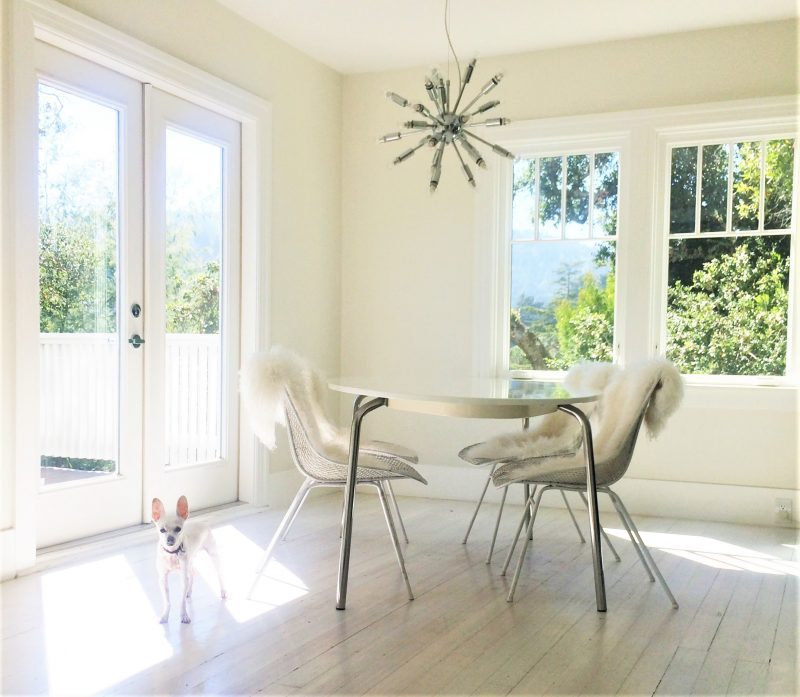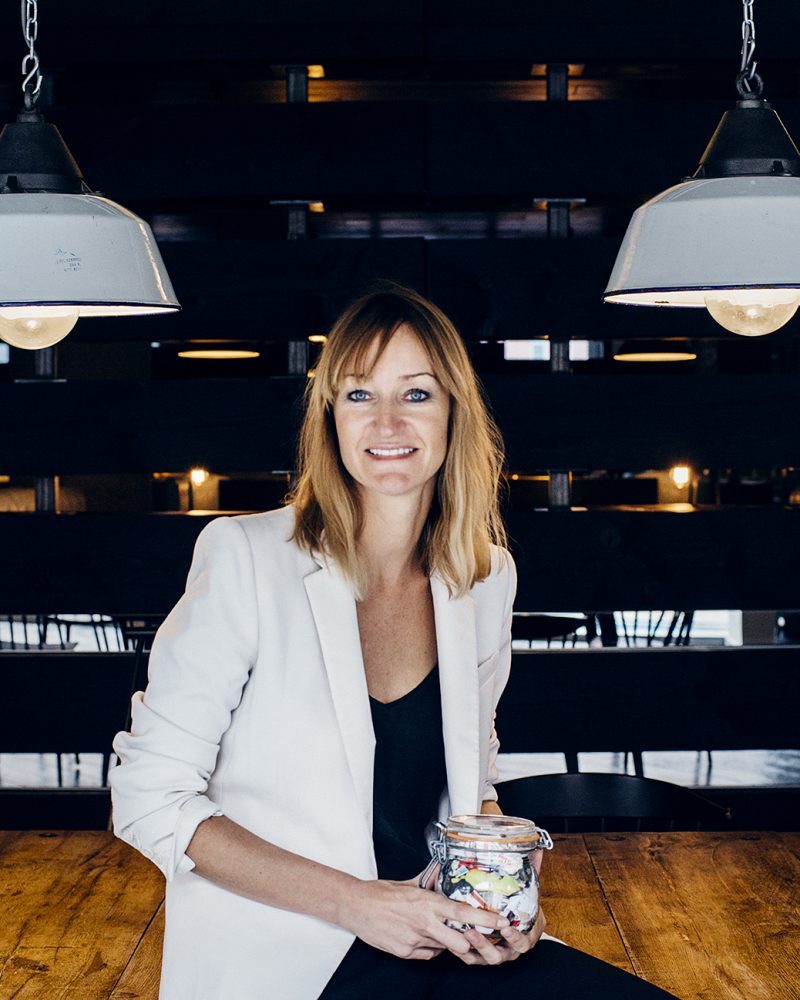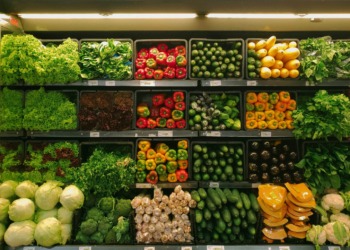Bea Johnson is a California-based French native, a guru of the Zero Waste lifestyle movement. She is an advocate for improving humanity through waste reduction; she often speaks at universities, presenting at conferences, and publishing a bestselling book translated into 17 languages, Zero Waste Home,
In this interview, Bea talks about the main principles of her zero waste lifestyle (Refuse, Reduce, Reuse, Recycle, and Rot) and how these changes have impacted her life.
Impakter Magazine: What was the trigger for you to change your lifestyle towards a zero waste one?
Bea Johnson: In 2006, we were living in a house outside of San Francisco, but it was located in a cul-de-sac. We had to get into a car to do just about anything. But we wanted to go to the downtown so that we could do other things like walking or biking, so we decided to move.
But, before finding the right house in the downtown that interested us, we rented an apartment for a year, and we only moved in with the necessities. During that year we found that when you live with less, you have more time to do what is important to you. You have more time for hikes, spending time with family, and doing picnics.
When we found the right house in the downtown that interested us, we got everything out of storage, and we found that 80% of the belongings that we had put in there we hadn’t missed for the whole year. So, we started letting go of things. It’s thanks to that voluntary simplicity that we had time to educate ourselves about environmental issues. We read books and watched documentaries, and what we found really made us sad. Thinking about our kids’ future that we were going to leave behind really gave us a high motivation to change our ways.
There was no guide on how to live a zero waste lifestyle back then, so we had to test a lot of things. Eventually, we found a balance that worked for us, and so zero waste has been automatic ever since!
What was the hardest thing for you during your transformation to the zero waste lifestyle?
The most difficult thing for us was to find a balance, a system that worked for us. We were so motivated when we get started, that we tried a lot of different things, like homemaking.
I was making my own cheese, bread, soy milk, but then I realized that I was not going to be able to stick to a zero waste lifestyle if I made all those things. And eventually let go of all the extremes. For example, instead of making my own bread, I decided I could just bring a pillowcase to the bakery. Instead of making cheese, I bring a jar to the cheese counter. Instead of making my toothpaste, I just use baking soda. Little by little, we let go of all the extremes and found a balance we could see ourselves sticking to for the long run.
I found in many articles, that your household produces merely a pint of waste. How many months, days or years did you need to achieve this result?
It took me about two years to find that balance because there was no guide on how to live zero waste. That’s why I had to test a lot of things, and I had to find lots of solutions. I googled solutions. I called my mom, my grandma, my mother-in-law. We lived in different eras, so they could give me a different point of view.
At the end you came up with a methodology of 5Rs. Can you tell us more about it?
Yes. The 3Rs were already known across the US. People were talking about Reducing, Reusing and Recycling. However, people were using them out of order. I found that there was a lot of emphasis on Recycling, nothing put on Reusing and even less on Reducing. So I came to a solution that it is essential to add additional two Rs: one at the beginning, which is Refuse, and one at the end, which is Rot. If you don’t don’t apply the 5R’s, you won’t get close to zero-waste.
Why should Refuse be at the beginning of the 5Rs methodology?
It is important to realize, that today, in this consumer society, we are targets of many promotional goods. If kids go to a party, they receive a gift bag filled with trinkets; if you go to the dentist, at least in the US, you are given a free toothbrush and toothpaste.
By accepting free things, we create a demand to produce more, which then come into our homes, clutter our space and create more trash. When we say “No” to the promotional goods, we stop the demand to make more, and we prevent them from coming to our homes and becoming our trash problem.
Now people are more aware of the environmental issues and want to reduce their influence to the environment. What advice can you give them? Where should they start?
I would simply recommend applying my methodology of the five Rs. I would encourage them, first of all, to Refuse, to think twice before accepting free things. If someone gives you a flyer, a business card or a plastic bag, think twice about it, about the demand you create and the trash you’ll bring into your home. Simply learn to say no.
The second tip would be to Reduce. I would encourage people to go through the belongings they have at home and question themselves about the actual need for these things. When you let go of the things that you do not use or need, you make it available to others. You donate them, and you put them back onto the market, and you boost the second-hand market which is extremely important for the future of zero waste. It is a way to share resources with others.
If it is hard for you to let go of the clothing, then start with the kitchen, and go through one drawer at a time, one cupboard at a time: Choose whatever space is easiest for you. I found that the more I let go, the better and the lighter I felt. Today I am a true minimalist. My whole wardrobe fits into a carry-on. I own fifteen pieces of the clothing, but having few items does not mean that I have few options, as I have elected items that are multifunctional.
The third tip would be to consider Reusing. Replace anything in your home that is disposable for a reusable alternative: Swap paper towels for rags, swap tissues for handkerchiefs, feminine products for a menstrual cup, etc. There is a reusable alternative on the market for anything that is disposable.
The fourth tip would be to think of Recycling only as a last resort before the landfills. Refuse, reduce and reuse as much as you can, to diminish your recycling. And look beyond the materials accepted in your curbside recycling, look for places where you can recycle clothing and shoes for example.
Finally, I would encourage people to implement a composting system. 40% of household trash is compostable: As soon as you put a composting system in place, you’ll notice a drastic reduction in your waste.
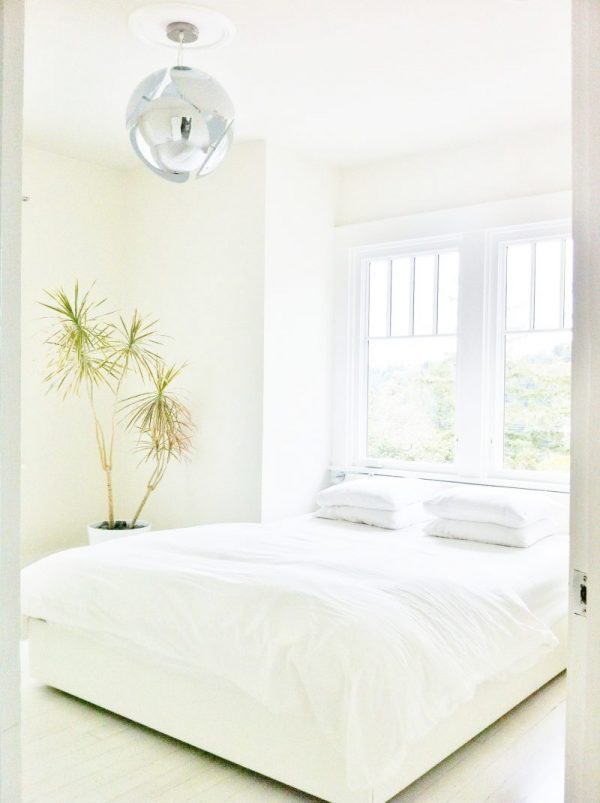 Are all 5Rs applicable to reducing waste in different aspects of our life?
Are all 5Rs applicable to reducing waste in different aspects of our life?
Yes, in all facets of our lifestyle: transportation, food, clothing, electronics, etc, we apply the 5R’s.
What are the advantages of a zero waste lifestyle?
A zero waste lifestyle is full of advantages beyond the obvious environmental benefits. When you adopt the zero waste lifestyle, you discover a simpler but richer life. It is a life that is rich with experiences, rather than with things. Instead of spending your money on things that you are going to throw away, you can spend it doing activities that build bonds with the family.
We also found that the zero waste lifestyle makes us healthier because it eliminated all toxic products from our lives: We clean with white-vinegar water, and use baking soda for scrubbing. We also buy food without packaging, so we eat whole natural healthy food.
The third advantage of the zero waste lifestyle is saving money. We found that we save 40% on our overall budget with this new way of life. We consume way less than before. We are happy with the amount of things we have in our home. If we need to buy something, we buy that replacement at the second-hand shop, which obviously costs less. We also buy food without packaging, which automatically saves 15%.
We also have replaced everything which is disposable for a reusable alternative, which translates into huge cumulative savings over time.
But for me, the best advantage of this lifestyle is simplicity: It makes a room in our lives for what matters most to us. It’s allowed us to discover a Life is based on Being instead of Having, and that’s, to me, what makes life richer.
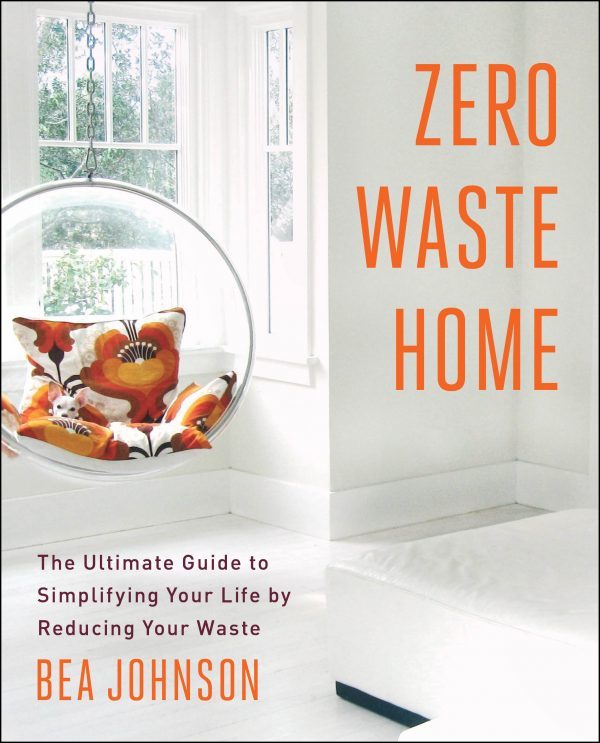
What are your plans?
My vocation is basically to shatter the misperceptions associated with the zero waste lifestyle. People tend to think that it takes a lot of time and it costs more to live this way, but it’s the complete opposite. So I participate in any project that allows me to shatter these misconceptions.
I accept requests for speaking engagements all over the globe. I just completed a speaking tour through 10 European countries and have more scheduled: one in Canada in October, another in Asia in December, and another in Africa in 2018.
I run a website , a bulk locator, and participate in social media. My book Zero Waste Home is now translated into 18 languages. When it comes out in a different country, I help with the adaptation and promotion.
Also, large manufacturers notice that the zero waste lifestyle movement is growing and knowing that I originated it, they contact me to have my input on their practices and products. I provide consulting on how to adapt their businesses and packaging to this new market. But what I ultimately recommend is eliminating packaging altogether!


